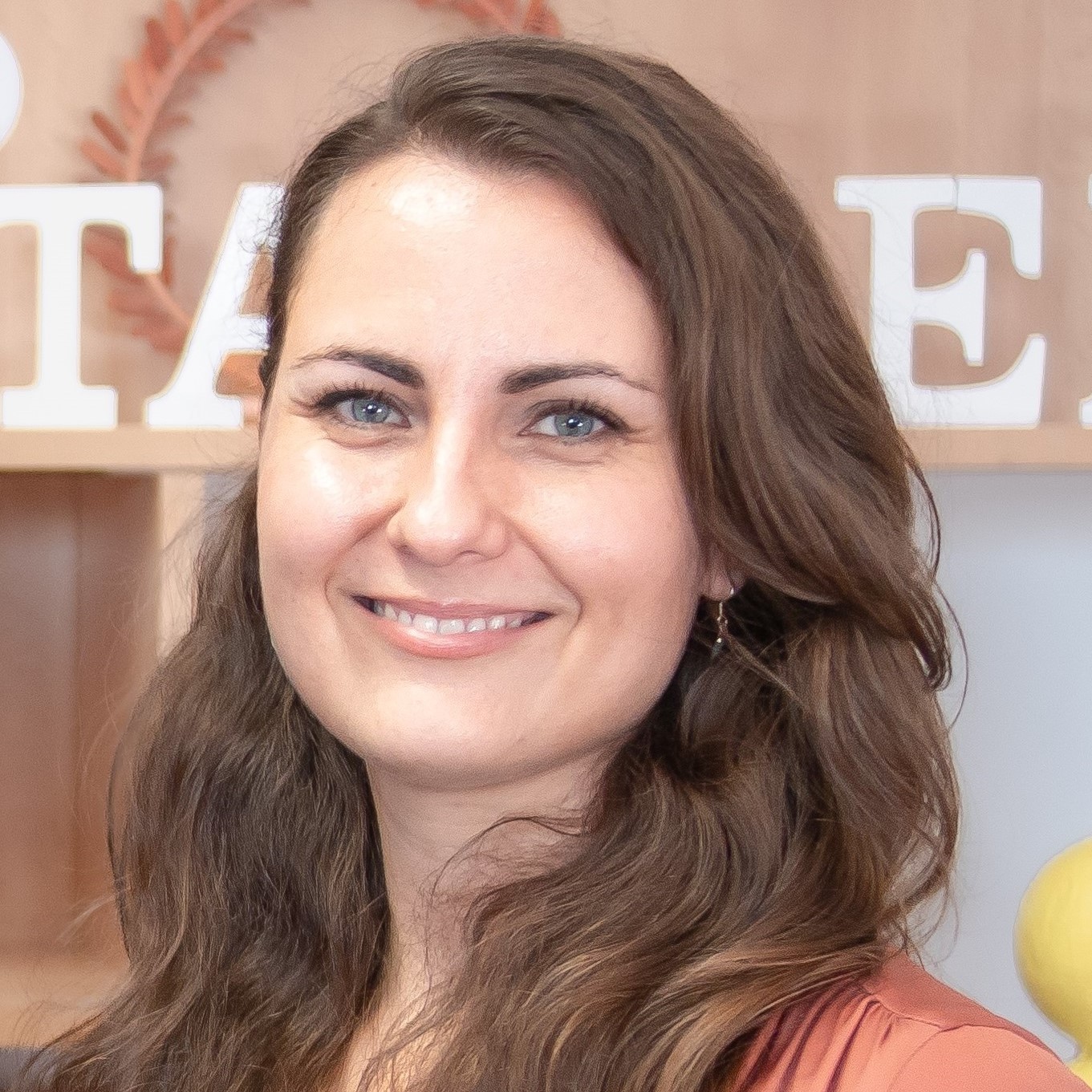
Éva Molnár
Professionals working with children face more and more challenges, which in many cases exceed their professional competences. Recognizing the limits of our competence, using the LLL (look, listen, link) method, asking for professional help, stress management and self-care — which are all lessons taught in the PFA training — are just a few of the watchwords that make me think that such a training for professionals working with young children is extremely useful.Country: Slovakia
Job title: Project Manager and Trainer
Sector: Early Childhood Education
Years of experience in her role: 6
In this interview, project manager and trainer, Éva Molnár, shares insights from her participation in the training “Foundational psychological first aid (PFA) and trauma-informed practices for young children and their caregivers” hosted by the International Step by Step Association (ISSA).
The program is designed to empower master trainers with comprehensive knowledge in PFA, enabling them to subsequently train early childhood professionals supporting young children and their families in Ukraine, including those displaced by ongoing conflict.
Read on to discover Éva’s perspective on the attitude-changing nature of the PFA training and how tapping into real-life experiences can be a gateway to encourage self-care among early childhood education and care (ECEC) professionals.
Why is it important to train early childhood education and care (ECEC) professionals in psychological first aid (PFA)? How is the training used and what good does it do? Professionals working with children face more and more challenges, which in many cases exceed their professional competences. This creates uncertainty and stress which can cause them to become unwell and prevent them from doing their work properly, leading to more stress. Recognizing the limits of our competence, using the LLL (look, listen, link) method, asking for professional help, stress management and self-care — which are all lessons taught in the PFA training — are just a few of the watchwords that make me think that such a training for professionals working with young children is extremely useful. However, for me the most significant thing about the training is its attitude changing nature.
What have you discovered about yourself personally and as a professional delivering the training on PFA, and/or while practicing what you learned from the training (with children, their families, and your co-workers)?
The training was very eye-opening for me and drew attention to the importance of self-care. For professionals, I realized that it is useful to have a forum to share real life experiences which go beyond theory, and I would again draw attention to the attitude-transforming nature of the training. For children, I find that the exercises are team building and relaxing for them, which they really enjoy.
Have you trained other workers besides those in early childhood education? Did they find it helpful? Yes, I have. One of them is still a university student, who was so influenced by the training that she is writing her thesis on this topic. All of them found the training extremely valuable and transformative.
How is this training useful for professionals working with children and families in distress? This training helps professionals recognize the limits of their competences and teaches practices that can be applied in their daily work, such as the LLL (look, listen, link) method, and makes them aware of the importance of self-care.
Many professionals working with mental health face stigma. Do you experience this? How do you handle it?
This is a difficult question and I think the reactions depend on the individual situation. Although attitudes towards the importance of mental health in our society are still not satisfactory, more and more people are recognizing its importance. I think it is crucial that we talk about this topic as much as possible, since prevention is more important than ‘treatment’.
Are there other concerns or challenges that you currently encounter in your work?
In each country, it would help a lot if professionals dealing with young children had other professional connections to which children and their families could be linked. Currently, some do not even know which other specialists they could ask for help. Or they know, but the help is only available in name, but in reality, is not available due to a lack of capacity and resources.
What would you say to your co-workers who are unsure about joining a PFA training?
Do not hesitate! I would tell them about my experience, that many participants indicated that the training helped to organize and frame their existing knowledge perfectly and helped them to realize that they do not have to solve everything alone. So, I can only encourage everyone to join the training.
What message do you want to send to your co-workers who currently promote PFA and trauma-informed practices?
I would say that the work we do is important. It is essential to emphasize a conscious approach to trauma, but it is equally valuable for us as professionals to be well. Let's pay attention to ourselves and practice self-care ourselves first.
What message do you want to send to the children and families in distress that you are working with?
I would tell these children and their families that there are many professionals working to help them, so they should dare to ask for help, and that (and I am not only saying this to the children and family in distress, but to everyone) that difficult feelings are also natural and there is nothing wrong with them.
